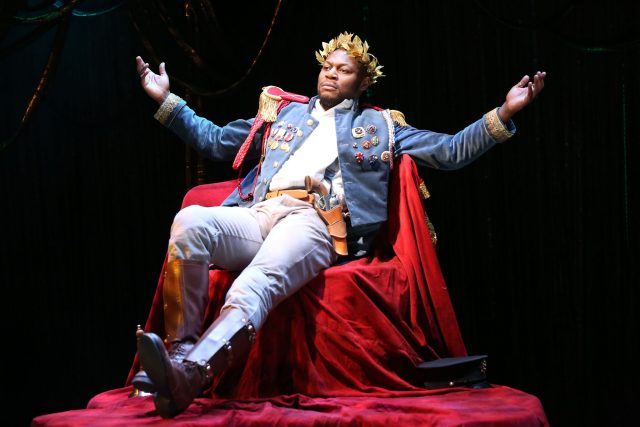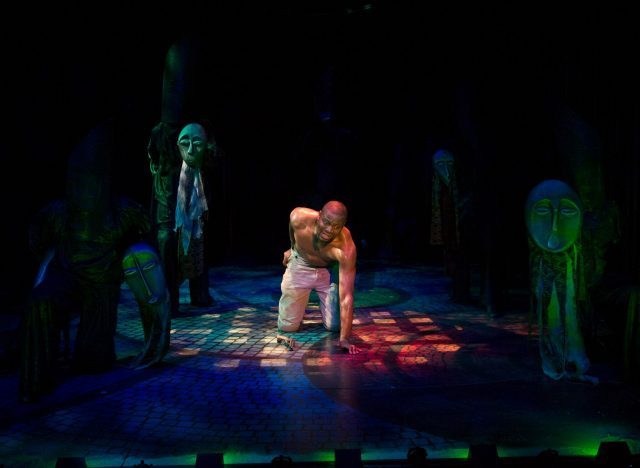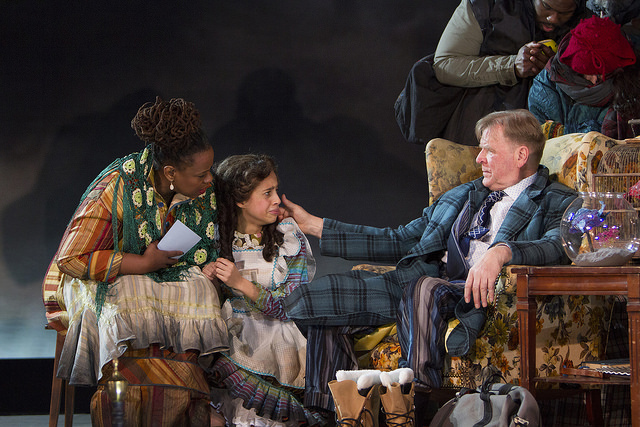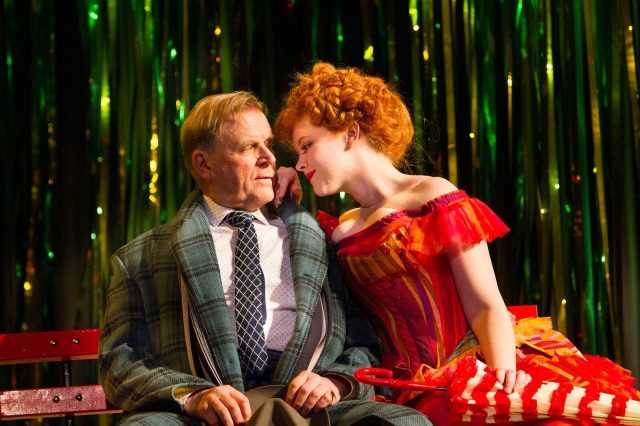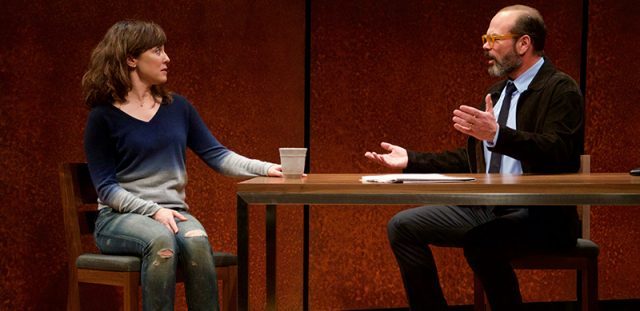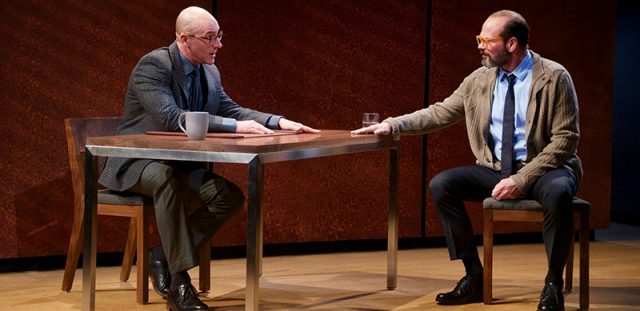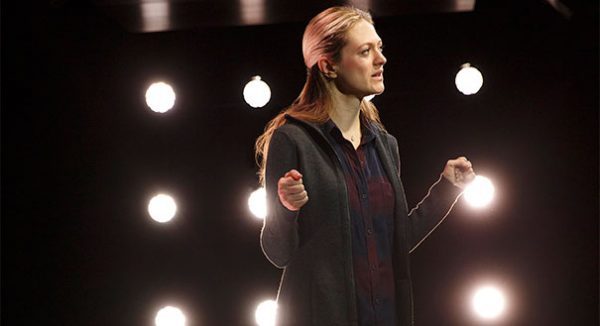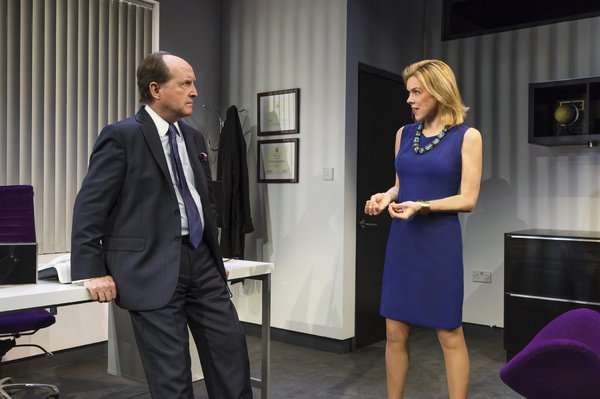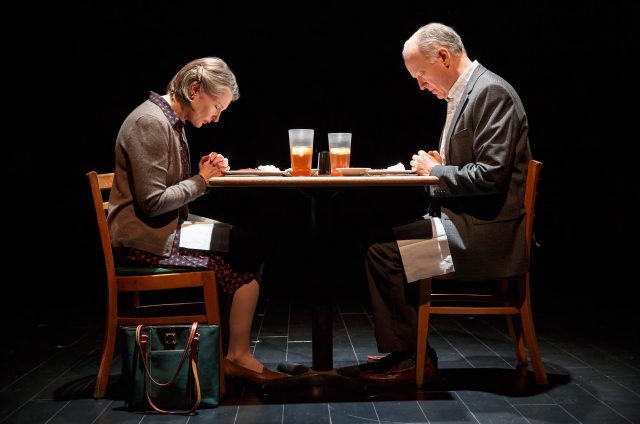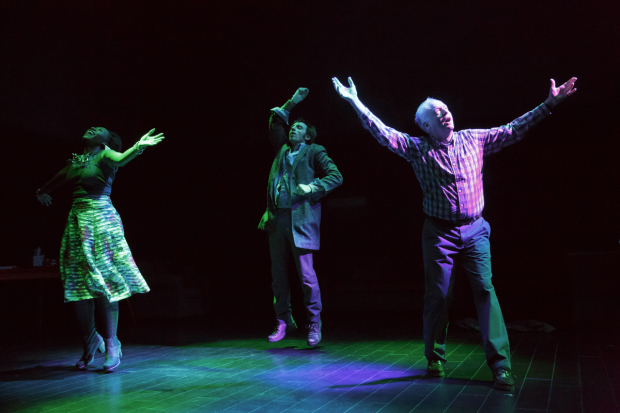
Two-time Emmy winner Michael Emerson returns to the New York stage in WAKEY, WAKEY (photo by Joan Marcus)
The Pershing Square Signature Center
The Alice Griffin Jewel Box Theatre
480 West 42nd St. between Tenth & Eleventh Aves.
Tuesday – Sunday through April 2, $30-$75
212-244-7529
www.signaturetheatre.org
Will Eno completes his three-play Residency Five program at the Signature Theatre with Wakey, Wakey, a very funny, deeply touching, and unique exploration of humanity and the life cycle. Partially inspired by his friendship with Signature founder James Houghton, who passed away in August 2016 at the age of fifty-seven from stomach cancer, Wakey, Wakey is about all the little pieces of basic daily existence that make us who we are, from birth to death. Michael Emerson returns to the stage as a character referred to in the script only as Guy, who as the play opens is lying on the floor, facedown. “Is it now?” he asks. “I thought I had more time.” For the next seventy minutes, Guy shares details from his life, plays word games, philosophizes about the world, shows home movies and YouTube videos, and is cared for by home health worker Lisa (a gentle and sweet January LaVoy). He also self-reflexively critiques what is happening in the theater. “Sorry, I don’t know exactly what to say to you,” he admits. “I wonder how you hear that, how that strikes you? What do you make of the fact that this event, painstakingly scripted, rehearsed, designed, and directed, features someone saying, ‘I don’t know exactly what to say to you.’ I hope you’ll receive that in the humble and hopeful spirit it was offered in.” Writer-director Eno, whose previous Signature works were Title and Deed and The Open House and who was represented on Broadway by The Realistic Joneses in 2014, has fun with the very clever staging; for example, noises that initially seem to be coming from the street or the audience are actually part of the sound design, and he uses physical objects in creative ways as well.
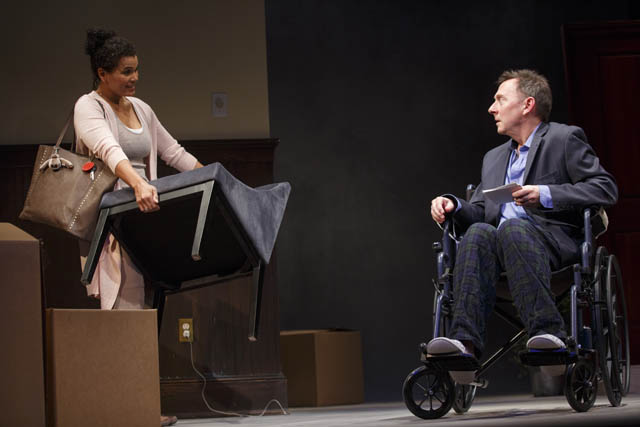
Lisa (January LaVoy) arrives to help Guy (Michael Emerson) in Will Eno world premiere at Signature (photo by Joan Marcus)
Following a video of screaming wildlife, Guy delves into the nature of pleasure and enjoyment, questioning where such feelings go once the moment is past. He also discusses how one’s life can be divided into two parts, one before watching the video, and one after it ends, in much the same way the play itself can serve as a dividing line, especially as it deals so intimately with life and death and how things don’t always go quite as planned. Christine Jones’s set consists of a free-standing door, a large wall with a calendar on it, and packing boxes, as if someone is moving in — or moving out. David Lander’s lighting, Nevin Steinberg’s sound, and Peter Nigrini’s projections all contribute to the play’s inventive originality. Two-time Emmy winner Emerson (Lost, Person of Interest), whose previous stage credits include playing Oscar Wilde in 1997–98’s Gross Indecency at the Minetta Lane as well as three Broadway roles, gives a rousing performance, tender and humane, mostly from a wheelchair, making the most of his expressive puppy-dog eyes and small body movements, the slightest pause or glance filled with charm and humble mischief, then pain as Guy takes a turn for the worse. The play certainly has a message, but it’s not quite as syrupy and sentimental as it could have been. “Yes, we’re here to say good-bye and maybe hopefully also get better at saying hello,” Guy explains. “To celebrate Life, if that doesn’t sound too passive-aggressive.” But even when you think it’s over, Eno has yet more surprises in store, both inside the theater and outside in the lobby, as you kick off the next phase of your life.
